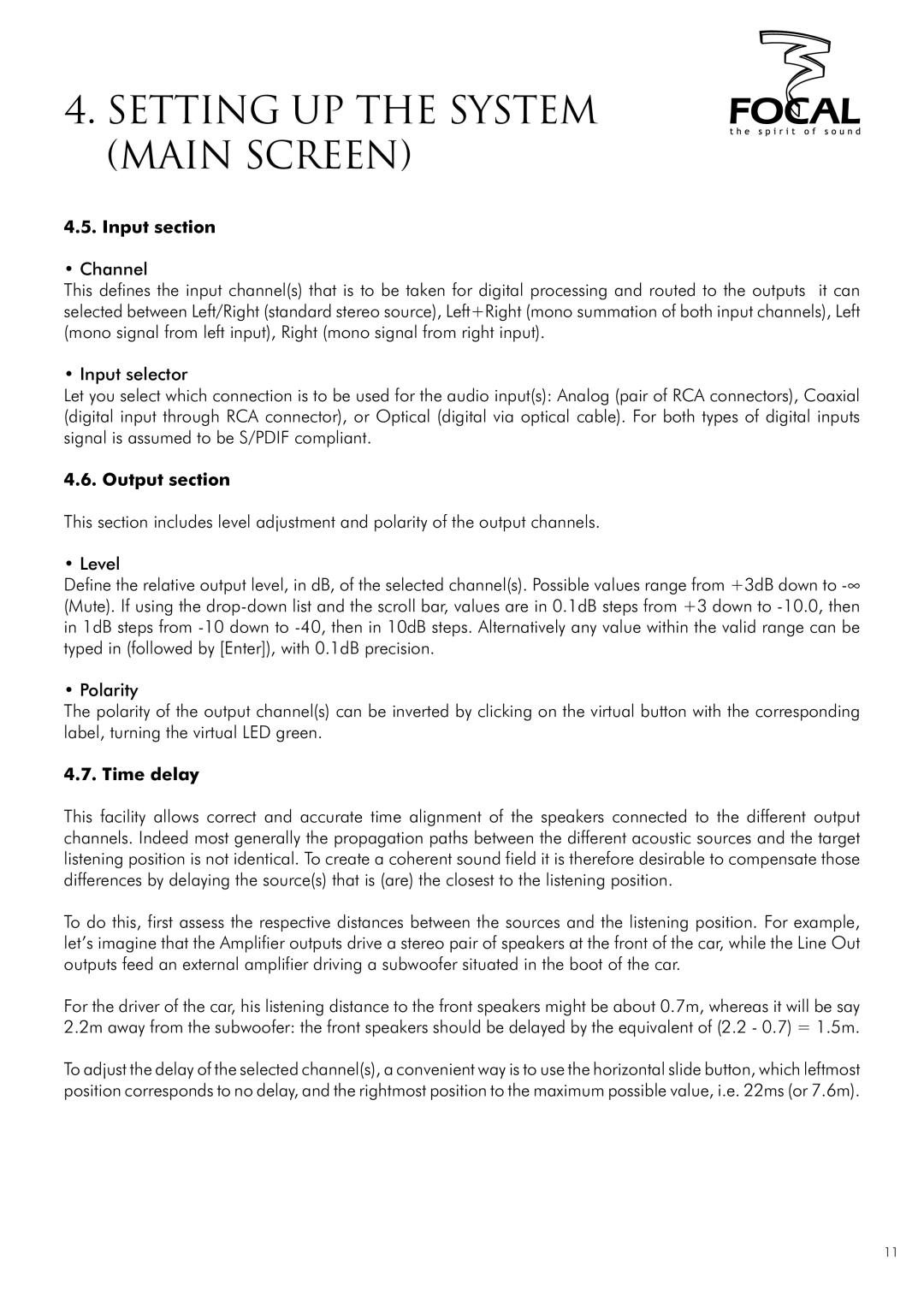
4. Setting up the system (main screen)
4.5. Input section
• Channel
This defines the input channel(s) that is to be taken for digital processing and routed to the outputs it can selected between Left/Right (standard stereo source), Left+Right (mono summation of both input channels), Left (mono signal from left input), Right (mono signal from right input).
• Input selector
Let you select which connection is to be used for the audio input(s): Analog (pair of RCA connectors), Coaxial (digital input through RCA connector), or Optical (digital via optical cable). For both types of digital inputs signal is assumed to be S/PDIF compliant.
4.6. Output section
This section includes level adjustment and polarity of the output channels.
• Level
Define the relative output level, in dB, of the selected channel(s). Possible values range from +3dB down to
• Polarity
The polarity of the output channel(s) can be inverted by clicking on the virtual button with the corresponding label, turning the virtual LED green.
4.7. Time delay
This facility allows correct and accurate time alignment of the speakers connected to the different output channels. Indeed most generally the propagation paths between the different acoustic sources and the target listening position is not identical. To create a coherent sound field it is therefore desirable to compensate those differences by delaying the source(s) that is (are) the closest to the listening position.
To do this, first assess the respective distances between the sources and the listening position. For example, let’s imagine that the Amplifier outputs drive a stereo pair of speakers at the front of the car, while the Line Out outputs feed an external amplifier driving a subwoofer situated in the boot of the car.
For the driver of the car, his listening distance to the front speakers might be about 0.7m, whereas it will be say 2.2m away from the subwoofer: the front speakers should be delayed by the equivalent of (2.2 - 0.7) = 1.5m.
To adjust the delay of the selected channel(s), a convenient way is to use the horizontal slide button, which leftmost position corresponds to no delay, and the rightmost position to the maximum possible value, i.e. 22ms (or 7.6m).
11
